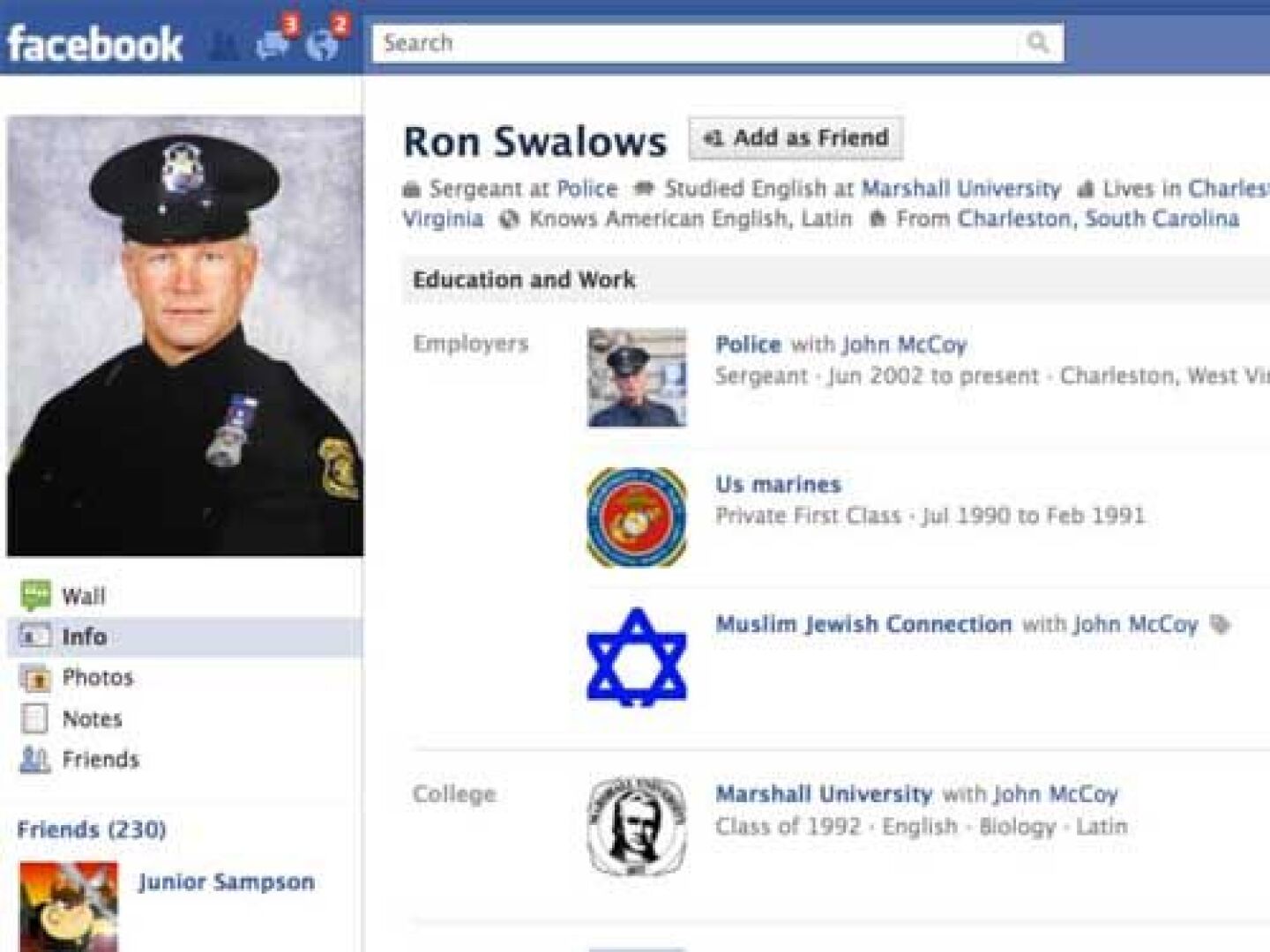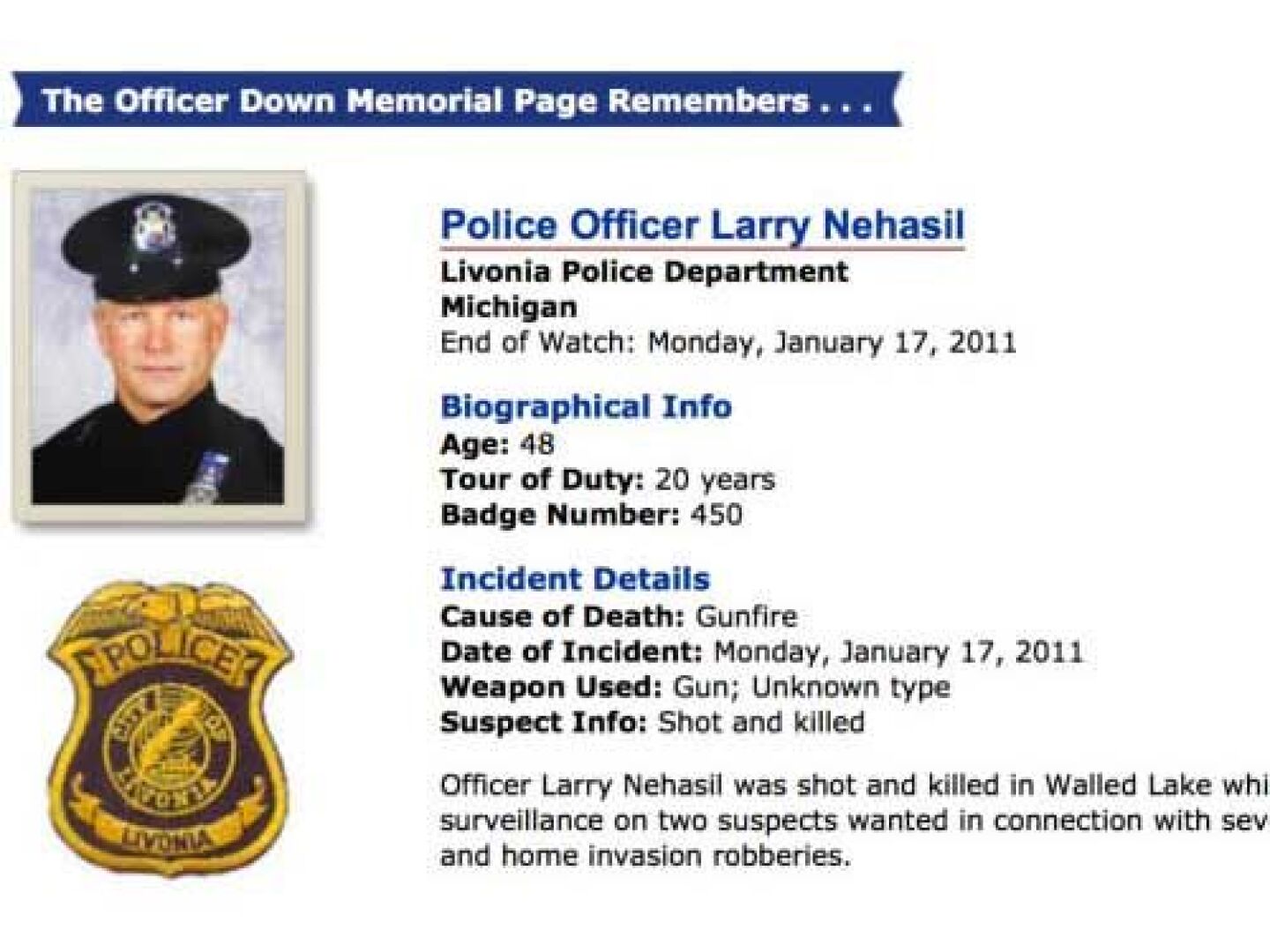According to an old English proverb, a man is known by the company he keeps. On Facebook, some police officers are keeping company they wouldn’t otherwise, and the same officers who guard themselves, their families and colleagues diligently day in and day out are behaving as though they’ve forgotten they work in one of the most dangerous professions out there.
The tables have been turned on law officers online. All those social engineering techniques police investigators do to ferret out pedophiles and gangbangers with fake profiles in social media are also being used by cop haters to gain intelligence about cops. People who would want to harm police officers are creating profiles to look like cops, and officers are friending them in the same way they’d have a buddy over for dinner, opening the front door and saying “come on in”.
There is no telltale sign that a profile on Facebook that appears to be a police officer is not really a police officer. It’s a combination of things that gives us reason to believe a profile might be phony. But those same reasons might also be interpreted as signs of a cop trying to protect his identity. Things like vague references to one’s employer, a profile photo depicting an eagle, the flag or even Jesus are all prevalent on these fake profiles. Look at the photo albums and there are rarely photos of real people. Instead we see images including cartoon characters, logos, random military and police photos.
One profile we know to have been fake is that of “Ron Swalows”. Have your laugh at the name — and then please take this seriously. It’s almost believable because in this case, there’s a photo of a real looking cop in uniform.
Close inspection will show (look just under his name) that he works for “Police”. Clicking that link will bring up a Wikipedia-style page defining a police officer. Facebook told me how many mutual friends we had. I emailed a couple of those friends, who are real friends I know in real life who are law officers. I emailed them to ask them what they knew about Mr. Swalows.
“I don’t know him, but he posts all the time in a group I’m in and he seems like a really nice guy,” they told me.
Folks, that’s part of the ruse. Isn’t that what you do when you’re pretending to be a 15-year-old hottie with cleavage who likes bad boys?
The only way we knew for certain that this profile was fake was because we saw that the photo used was that of Larry Nehasil, an officer who was gunned-down in Livonia, Michigan in January 2011. Here’s his profile on the Officer Down Memorial Page.
These people are learning a lot about the cops who friend them, as well as their colleagues and family members. It sure would be easy to learn an officer’s kids’ names and where they go to school or take karate lessons. I’m extremely concerned for three reasons. By friending a cop, they gain:
1.) Access to a law officer’s personal information
2.) Credibility to your Facebook friends so they, in turn, friend them too
3.) Legitimacy, and therefore, entry into private groups on Facebook, gaining valuable intelligence you really don’t want them to have
The only way to guard oneself from these predators – and they are predators – is to be absolutely certain that everyone you friend on Facebook is someone you know is real. They may not be holding a gun to your head, but that doesn’t mean they aren’t wishing to harm you because you wear a uniform. It also doesn’t mean that they’re not just as dangerous as a loaded round headed in your direction.
Kevlar doesn’t make a vest to protect you on Facebook. Your only protection is not to act carelessly, so keep your guard up as you are trained to do on the job.




